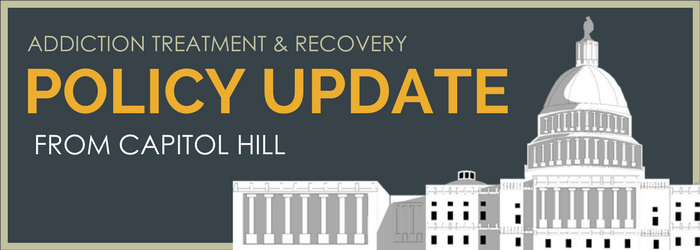
January 19, 2018 |
National Addiction Policy Update January 2018

WASHINGTON D.C. UPDATE
In January, Congress returned to Washington to officially start the second session of the 115th Congress. As of press time, the House and Senate are still negotiating on another short term continuing resolution (CR) to keep the federal government open. Unless something changes, the latest CR will extend until February 16, 2018.
The purpose of the CR through February is to allow time for negotiators to reach an agreement on an omnibus package of the Fiscal Year 2018 spending bills and other priorities. Such a package is expected to include the second half of the $1 billion ($500 million) in state grants for addressing the opioid misuse and overdose epidemic that was approved in the 21st Century Cures Act in 2016. Additionally, Senate Democrats in particular are advocating for an additional appropriation of money to address the epidemic as part of the spending package. (The Hill: Senate Dems seek $25B in opioid funding)
Later this year the House and Senate may consider authorizing legislation to address the opioid misuse and overdose epidemic – the package is being referred to as “CARA 2.0” in a nod to the Comprehensive Addiction and Recovery Act (CARA), which was enacted in 2016. Discussions are in the early stages at this point with little clarity on which specific provisions might be included.
Key 2018 Dates:
- January 30th: President Trump’s first State of the Union address to Congress
- February 5th (approximate): President’s Budget Request sent to Congress
- November 6th: Mid-term elections
This Policy Update was generously provided by Holly Strain & Carol McDaid of Capitol Decisions, bringing you the latest national addiction policy updates from Capitol Hill.

